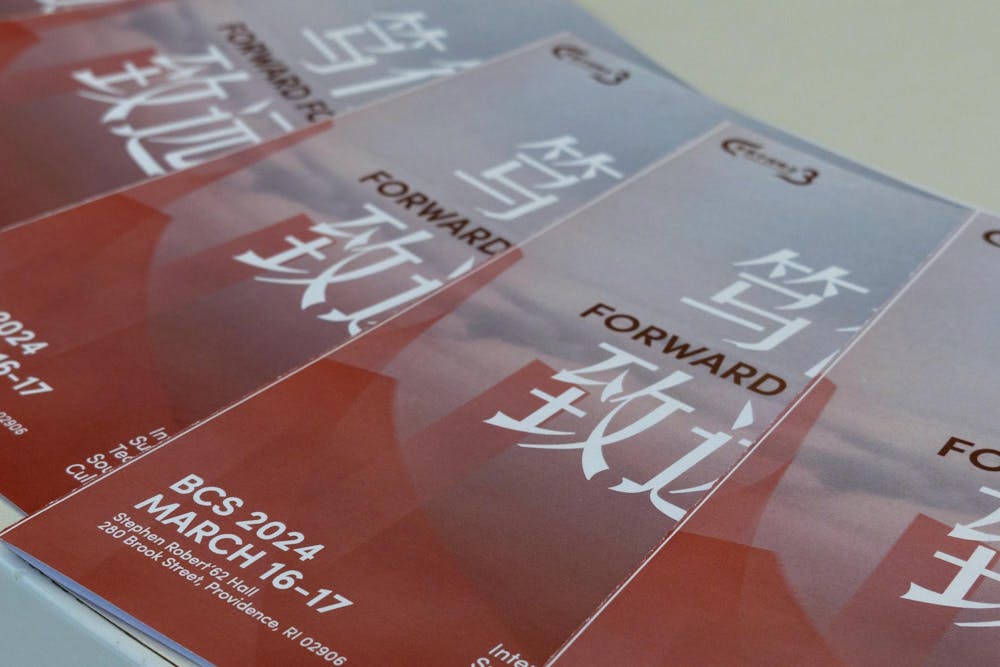This year’s Brown China Summit — an annual conference that brings experts from different fields and backgrounds to engage in discussions on China-related issues — took place this weekend at the Stephen Robert ’62 Hall.
The summit revolved around the theme of “Forward Focus” and included five panels on technology, international relations, cross-cultural challenges, sustainability and other topics. All panels took place in person.
According to Patrick Anders ’25, Brown China Summit’s head of finance and logistics, the theme of “Forward Focus” was chosen partly because of summit members’ interest in the future of the U.S.-China relations given recent political moments, such as the elections in Taiwan.
When selecting panelists, Co-President Michael Ling ’25 said that the summit prioritized “in-person engagement” and a diverse group of speakers.
Anders highlighted the summit’s wide audience as “a platform of open dialogue.” According to him, the event is “good for anyone interested in U.S.-China relations and global affairs.”
On Saturday, following opening remarks, the summit began with three panels: “A Technological-Cultural Tapestry: AI, Artistry and Authorship,” “South East Asia: Opportunity and Strategic Cooperation” and “Across the Strait: Historical and Contemporary Perspectives.”
The other panels, which took place on Sunday, were titled “Navigating Cross-Cultural Challenges: Chinese Success in America” and “Ecological Civilization: At the Intersection of Policy, Business and Philosophy.”
The panelists expressed a wide range of opinions throughout the event. During “South East Asia: Opportunity and Strategic Cooperation,” Prashanth Parameswaran, the founder of the ASEAN Wonk Newsletter and a fellow at the Wilson Center’s Asia Program, spoke on the relationship between Southeast Asian countries and China. She believes that Southeast Asian countries “won’t simply pick a side between the U.S. and China,” instead acting as a “cooperating regional bloc.”
Alice Ba, a professor at the University of Delaware, pointed to a world order of “multilateralism and multi-polarization” with Southeast Asian countries “playing a more prominent role,” instead of “a bipolarized order” dominated by the U.S. and China.
During “Across the Strait: Historical and Contemporary Perspectives,” Dean Chen, a professor at Ramapo College in New Jersey, predicted that either President Joe Biden or former President Donald Trump will approach the Taiwan issue in a “pro-Taiwan fashion” in the near future. He added that the U.S. is “bounded by national interest.”
Fengsuo Zhou, a former student leader during the 1989 Tiananmen Square protests and an executive director of Human Rights China, said that he believes Taiwan to be the “leading democracy in Asia. He asserted that the U.S. should defend Taiwan “without any ambiguity.”
Carmen Johnson ’24, an Economics and East Asian Studies concentrator and a first-time attendee of the summit, said that she learned a lot about U.S.-China relations, including how Taiwan contributed to such tensions. She also learned about ways Southeast Asian countries could “cooperate and become an economic powerhouse in a multi-polarized world.”
“I learned much more from the panelists than I had expected,” Johnson said.





